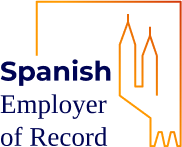14 February 2025
How to set up payroll in Spain: A complete guide for employers
Successfully managing payroll in Spain is crucial for any business operating in or expanding into the country. From managing Spanish tax laws to understanding social security contributions and mandatory benefits, setting up payroll can be complex, especially for companies new to the Spanish labour market. Failure to comply with local regulations can lead to hefty fines, tax penalties, and administrative burdens.
This guide provides an overview of everything you need to know about setting up payroll in Spain. It explains key regulations, how to register your company, and the process for calculating taxes, benefits, and salaries. It also offers practical advice on managing compliance and exploring outsourcing options, such as partnering with an Employer of Record (EOR) in Spain.
Understanding Spanish payroll regulations
Employers in Spain must comply with a range of labour laws and tax obligations that regulate how salaries are calculated, reported, and paid. Payroll compliance involves registering with the proper authorities, adhering to strict reporting deadlines, and keeping accurate records of payments and deductions. The main authorities overseeing payroll compliance in Spain include:
- Agencia Tributaria (Spanish Tax Agency): Responsible for collecting income tax (IRPF) and overseeing tax compliance.
- Tesorería General de la Seguridad Social (General Social Security Treasury): Manages social security contributions and issues social security numbers for employees.
Businesses must ensure that their payroll processes are aligned with Spanish laws, including those concerning minimum wages, working hours, and statutory benefits. Non-compliance can result in financial penalties, back taxes, and reputational damage.
Registering as an employer in Spain
Before you can run payroll, your company must be properly registered. This process includes obtaining a CIF (Código de Identificación Fiscal)—the Spanish Tax Identification Code—and registering with the Social Security authorities.
To register, you will need to:
- Obtain a CIF: Apply through the Agencia Tributaria to receive a company tax ID.
- Register with Social Security: Complete the registration process with the Tesorería General de la Seguridad Social to establish your company’s account for making mandatory contributions.
- Enroll employees: Ensure that all employees have valid social security numbers and are properly registered with the authorities.
Employee classifications and contract types
In Spain, the type of employment contract you use has a direct impact on payroll calculations. The most common contract types include:
- Full-time contracts: Standard employment contracts with full statutory benefits.
- Part-time contracts: Pro-rated benefits and contributions based on reduced working hours.
- Temporary contracts: Short-term agreements often tied to specific projects or seasonal work.
- Freelance/contractor arrangements: Independent workers, often referred to as autónomos, who manage their own tax and social security obligations.
Using the correct contract type is essential for compliance, as misclassifying employees can lead to fines and additional employer obligations.
Payroll taxes and social security contributions
Employers in Spain must deduct and remit several types of taxes and contributions from employee paychecks:
- IRPF (Personal Income Tax): Withholding rates depend on salary level, family situation, and region. Employers must deduct these amounts and remit them to the Agencia Tributaria.
- Social Security contributions: Employers are responsible for a portion of these contributions, which fund benefits such as healthcare, unemployment insurance, and pensions. Employees also contribute a portion of their salary, which the employer deducts and submits on their behalf.
- Additional deductions: Employers may need to pay into training funds or other industry-specific levies.
Reporting these taxes on time is critical. Late or incorrect filings can trigger financial penalties and interest charges.
Employee benefits and statutory payments
Spanish law requires several benefits that employers must include in their payroll processes. Employees are entitled to at least 30 calendar days of paid holiday per year, and employers may need to provide sick pay for a certain period before social security takes over.
In cases of contract termination, employees are often eligible for severance pay calculated based on their length of service.
Moreover, many contracts mandate a 13th-month salary, which is typically divided into two extra payments—one during the summer and another at year-end. These statutory benefits must be accurately calculated and paid on time.
Payroll processing: steps and best practices
Payroll in Spain typically operates on a monthly schedule, with payments made at the end of each month. Key steps include:
- Calculating gross salary: Start with the agreed-upon gross wage and add any overtime or bonus payments.
- Applying deductions: Subtract employee IRPF, social security contributions, and other required levies.
- Issuing payslips: Provide employees with detailed payslips that outline gross pay, deductions, and net pay.
- Maintaining records: Keep thorough payroll records for compliance purposes and future audits.
By following a structured payroll process and staying up-to-date on regulatory changes, employers can reduce the likelihood of errors and penalties.
How an Employer of Record can simplify payroll in Spain
For businesses unfamiliar with Spanish payroll regulations, partnering with an EOR can provide significant benefits. An EOR acts as the legal employer, handling payroll and compliance on behalf of the client company.
Key advantages include:
- Compliance assurance: The EOR ensures that all payroll calculations, deductions, and filings meet Spanish labour laws.
- Simplified administration: By managing payroll, taxes, and employee benefits, the EOR reduces the administrative burden on your HR and finance teams.
- Cost-effective solutions: With no need to set up a local legal entity, businesses save time and resources while ensuring legal compliance.
For example, imagine a tech company based in the United States that wants to hire a software developer in Spain but doesn’t have a legal entity there. Instead of navigating the complex local payroll regulations, filing tax documents, and setting up social security contributions, the company partners with an Employer of Record in Spain.
The EOR takes care of the entire payroll process, including issuing compliant contracts, ensuring proper deductions for social security and income taxes, and paying out the employee’s salary on time. This not only saves the company time and reduces the risk of compliance issues, but it also provides the employee with a seamless payroll experience.
An EOR can also assist with onboarding employees, managing employment contracts, and keeping up with changing regulations. This makes it an ideal solution for companies expanding into Spain or hiring remote workers.
Make the right move
Setting up payroll in Spain involves understanding complex regulations, taxes, and employee benefits. Employers must register with the appropriate authorities, comply with tax and social security obligations, and ensure that employee contracts and classifications meet legal standards.
Partnering with an Employer of Record can be a game-changer for companies that lack in-house payroll expertise or want to streamline their operations. By taking on administrative and compliance responsibilities, an EOR allows businesses to focus on growth while maintaining confidence that their payroll is accurate, compliant, and efficient.
If you’re ready to simplify payroll management in Spain, contact us today to learn more about how an EOR can help your business grow.



